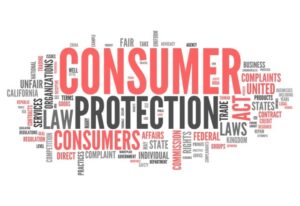Consumer Protection SS2 Commerce Lesson Note
Download Lesson NoteTopic: Consumer Protection

Consumer protection is the practice of safeguarding buyers of goods and services, and the public, against unfair practices in the marketplace.
REASONS FOR CONSUMER PROTECTION
- To protect against substandard and poor quality.
- To ensure that consumers derive maximum satisfaction from the commodities they purchase.
- To reduce exploitation of the consumer by the manufacturers and middlemen.
- To protect consumers from misleading claims and false advertisements.
- To curtail unfair trading practices
LEGISLATIONS FOR CONSUMER PROTECTION (In Nigeria)
- Food and Drug Act 1955
This law provides regulations for the regulation of manufacture, sales and advertisement of food, drugs, etc. The Act provides that:
- Goods that have poisonous or harmful substances are unfit for human consumption.
- Adulterated goods or drugs must not be sold.
- All goods must be accurately labelled with the ingredients contained in the food.
- The Act allows for environmental health officers to close down any premises which sell unfit food products.
- The Act has been amended by various food hygiene laws which maintain how food products are prepared in restaurants and pubs, but the underlying legality of the Act remains.
- Weight and Measure Act of 1963
Under the Weights and Measures Act:
- It is illegal for businesses and manufacturing firms to sell goods which are not to the specific weights or measures as described on their packaging.
- Manufacturers can get away slightly with powdered goods as they can state that the goods may settle under transportation.
- Standard weights and measurement systems are used.
3. Price Control Decree 1970
The decree was introduced to control inflation by fixing the retail prices of some commodities. This is to provide stabilization of general price levels.
- Trade Description Act 1968
This was introduced to prevent the deception of consumers by false advertising. It prohibits misleading descriptions of goods and services.
- Standard Organisation Decree 1971
The decree established the standard organization of Nigeria (SON) to standardize methods and products in industries and to ensure compliance with government policy in standardization.
- Hire Purchase Act 1975
The Hire Purchase Act was passed to place a break on the catalogues of injusticecataloguesnt in hire purchase transactions. It provides for the requirements relating to hire purchase and credit sale agreements.
- Rent Edict
The rent edict was introduced to curb the excesses of landlords and agents. It serves to control rent charges by landlords, ensure compliance with the edict, ensure the rights of the tenant and also curtail the activities of caretakers and agents.
- Sales of Goods Act 1893
The Sales of Goods Act was introduced to regulate the respective rights and duties of the vendor and purchaser. The provisions are; the seller has the right to sell in any contract of sales, the goods must correspond with description, the bulk must correspond with samples and also that the goods must fit the purpose for which they are required.




















